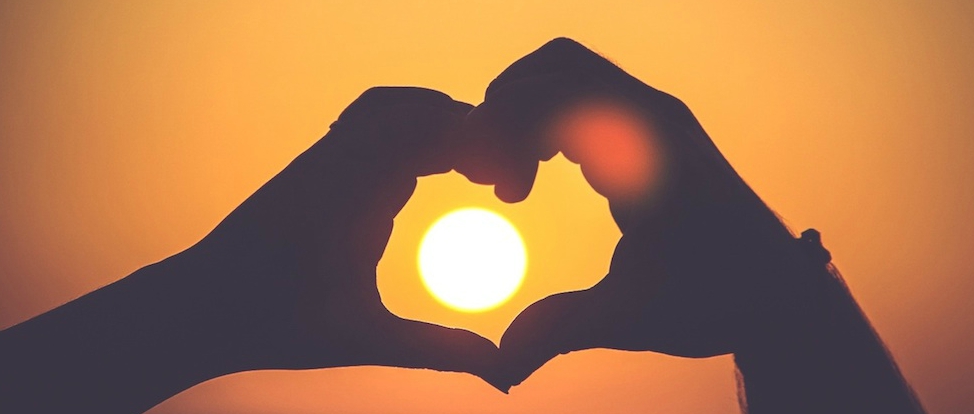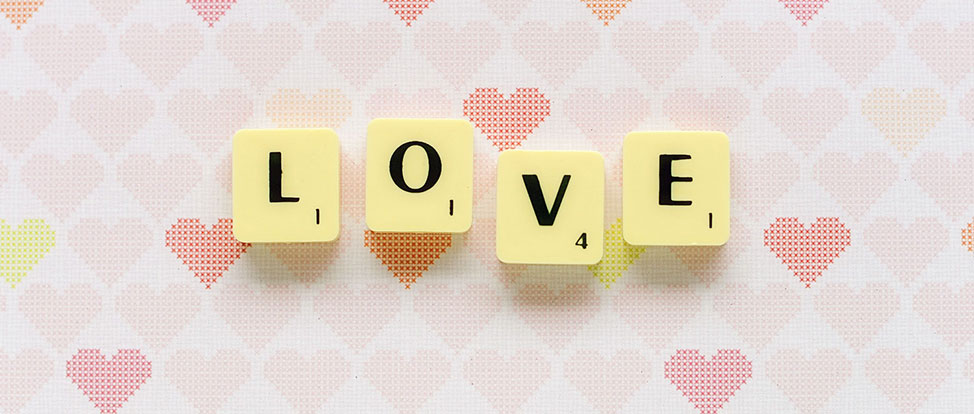
This week sees the launch of my free interview series ‘The Overachiever’s Survival Guide‘, a series of audio and written interviews from expert Bloggers, Psychologists and Coaches on how they keep themselves happy, healthy and sane.
The 16 interviews are packed with great advice, inspiration and resources, and I think you’re going to love them! Most of them are audio, but the wonderful David Cain from the blog Raptitude shared the following thoughtful written interview.
Enjoy!
Writer David Cain shares his experience of ‘getting better at being human’ at the popular blog ‘Raptitude’. What I love about David’s writing is that he uses plain language, and is grounded in both the literature in the area and his own practical experiments, that is, the application of ideas and public observation of the results. Enjoy the interview!
Ellen: I want to start by getting your definition of taking care of yourself, and being kind to yourself. I’ve read your thoughts that you feel self-love is about what you do, and the quality of your actions. Can you expand on this a bit more?
David: When I talk about self-love in that sense, I’m talking about a kind of almost parental love, where you’re doing what’s best for the long-term success of the child and not necessarily what is most pleasing to them. And it can be hard to do that sometimes. In other words it helps to think of how you would do the loving thing for someone else, and apply it to yourself. Often self-love is confused with self-indulgence, which is the equivalent of feeding a kid ice cream for breakfast because that’s what pleases them the most. So just ask what the most loving thing to do is, if well-being is your goal.
Ellen: I read a quote from you that you ‘used to find life difficult, and now … don’t’. What was the thing that really made a difference for you?
David: I had that line on my About page for quite a while but I think it’s misleading. Something changed in my life that made it feel much simpler and less confusing, but I shouldn’t have said I no longer find life difficult, it’s just simpler, and difficult in a different way. The big change was to see difficulty and suffering as an in-the-moment mental state and not a question of circumstances. Circumstances do matter, but only insofar as they affect one’s present-moment mental state. So I shifted focus from goals and achievement to focusing on what to do with my mind, regardless of circumstances.
Ellen: One of the things you talk about a lot on your blog is meditation – you’ve even written a guide called ‘Making Things Clear: A Brief Guide for People who Think Meditation is Hard’. Can you share how meditation has helped you to take better care of yourself?
David: Well it makes you much more aware of how your mind works, for one thing. You become more familiar with how repetitious and predictable your thoughts are, and you start to see them more as a kind of sense-data rather than truths. They become easier to manage, because you realize that you don’t necessarily have to believe your thoughts, and often they’re not true. They’re more like reflexes than insights, most of the time. Thoughts slow down when you meditate regularly, and so they become more conspicuous, and less likely to fool you into unproductive emotional reactions. There are a lot of positive domino effects of learning to manage thinking better, and that’s only one benefit of meditation. It also gives you insights about the nature of experience itself — What is the self? What is actually difficult about difficult experiences? What is pain when you pay close attention to it? What is going on when I feel anxiety appearing? So much of it is a matter of looking directly at experience in real-time and discovering its mechanics.
Ellen: How has that experience influenced the way you approach taking care of yourself today?
David: I think of my mental state as something that needs to be kept healthy, not unlike one’s lungs or joints. I know what’s good for it (meditation, mindfulness, creative work) and what’s bad for it (online arguments, alcohol, idleness).
Ellen: You also bust through a lot of self-limiting beliefs on the blog. One I loved recently was the idea that we should focus on the idea of making our lives easier, not better, but that we ignore the idea that sometimes a small amount of difficulty can actually serve as the ‘gateway to ease’. I’ve also read you say ‘comfort is not the same as loving yourself’. Can you talk a bit more about how difficulty can help us to make life easier for us?
David: I’ve noticed that avoiding difficulty has made my life harder, which is ironic. And in the same way, taking on difficulty has made my life easier. Avoiding a difficult phone call for two weeks creates a much worse two weeks than making the difficult phone call. Everywhere I look, I find that confronting difficulty releases a lot of ease, and avoiding difficulty creates more of it. So I’m trying to work on moving right into and through difficulty, even though my impulse is to try and get around it, or take a different route altogether. So many times I have finally rolled up my sleeves to tackle something hard, and found my life getting much easier almost immediately. This irony is fascinating to me and it seems to be almost always true.
Ellen: In another post, you talked about the role of emotions, and the fact that whilst we tend only to pay attention to the strongest of emotions, we’re always feeling something – but we ignore some emotions like a fish ignores water. How can we better adjust and understand our emotional states?
David: I can’t think of anything better than meditation. When you sit down and close your eyes to meditate, the first thing you notice is that there is a ton of stuff going on at all times. Much of it is too subtle to notice at any time other than when you’re sitting specifically to notice your experience, so only a dedicated attentional practice like meditation can reveal what’s there. Daily “off-the-cushion” mindfulness brings that awareness into the rest of life.
Ellen: You do a lot of experiments to ‘become a better human’. Some of those seem to have had a very positive effect on you, physically, emotionally and mentally. Which do you think has had the most impact?
David: Good question. Probably my initial “A place for everything and everything in its place” experiment. I learned about the night-and-day difference between an untidy home and a home where everything has a place. The effect is mostly psychological, and it’s enormous. And it affects you every moment that you are home. Just the other day I finished a related experiment where I did the same thing but in a more organized manner, and it’s been extremely rewarding.
Ellen: When and where is self-care, or being kind to yourself, most important in your life?
David: The morning. Mental states have a kind of momentum, and if I start the day off paying attention to how I’m doing, I’ll make better choices all day and those choices will reinforce the trend all day.
Ellen: What have been your own biggest obstacles to taking care of yourself?
David: My terrible habits of procrastination. I am not a lazy person, but I have some weird complexes when it comes to productivity. I self-sabotage in subtle ways, making it hard to do anything I’ve never done before.
Ellen: How have you got over those obstacles?
David: I haven’t! But I have made improvements, by reading and writing on the topic of self-improvement and by experimenting with new habits.
Ellen: Do you think there’s a difference in how men and women view taking care of themselves? How do these differences manifest?
David: I don’t really know. Fundamentally, no. But there are certainly different cultural pressures that push men and women towards different coping strategies and different priorities. I think we’re generally the same though, and fundamentally we all suffer from the same issues: insecurity, doubt, clinging, unconscious habits, etc.
Ellen: What key pieces of advice would you give to overachievers who are perhaps not taking enough care of themselves? How can they become better humans, but still be self-compassionate?
David: Sometimes we treat ourselves in ways we would never treat others. I think it helps to think of yourself as someone else, and ask yourself if what you’re expecting of that person is reasonable. Would you work your friend to the bone the way you’re doing to yourself? We’re often harder on ourselves than we are on others, for some reason.
Ellen: Apart from your own website, which I definitely recommend, what resources, books or websites do you recommend for people to discover more about taking care of themselves, or being kind to themselves?
David: I love Jon Kabat-Zinn’s books. He’s probably the best at explaining how mindfulness applies to real life, off-the-cushion life. He keeps it non-denominational and relatable. Steve Pavlina’s site is also still totally loaded with excellent self-improvement ideas, especially the stuff related to goals and mentality. And my favorite self-help book of all time is still Don’t Sweat the Small Stuff by Richard Carlson. It changed how I think for good, and could do something significant for almost anybody.
Ellen: And to sum up, what’s your ‘quick tip’ for self-care, or self-compassion? How do you calm yourself, or soothe yourself, when you don’t have much time?
Go for a walk!
You can find David at Raptitude.com – his site is well worth a visit.
Download this interview and 15 more in ‘The Overachiever’s Survival Guide’ – click here to grab them!









Comments on this entry are closed.
Ellen,
So excited to discover David and his blog! David shares some books that are also some favorites of mine. Heading over to visit Raptitude!
Thanks for sharing this great interview!!
Looking forward to the next one.
Thanks Betsy, yes, there’s plenty to read on his blog – really interesting, thoughtful stuff. You’ll love it!
Ellen,
Thank you for sharing such valuable wisdom from David. I love this:
“Sometimes we treat ourselves in ways we would never treat others.”
and unfortunately it is so true for so many of us Not anymore for me!
I also like how he reframed an untidy home to ” a home where everything has a place. I’m going to use that one! :)
Thanks Debbie, yes, he makes some great points. I find a home where everything’s in the right place much more restful than when I don’t know where anything else is – and I’m sure it’s more efficient too :-)
Wonderful interview and thanks for the intro to David. Yes I agree go for a walk- mine is to the beach.
Thanks Suzie, it’s definitely a reminder for me to do more walks – I’m too dependent on my little scooter in Thailand! I’m planning to get a FitBit for christmas and I hope that will encourage me to walk more :-)
Thank you David and Ellen for this lovely interview on taking care of yourself. I like and agree with this line, “I can’t think of anything better than meditation.” I’m still working on being more consistent with meditation, however I do find it so helpful. Great tips here, thanks!
Thanks for reading Cathy, and yes, my meditation practice is also inconsistent – I go on a retreat and meditate for days, then don’t do any for weeks! Perhaps something to work on for next year.
Awesome interview Ellen, goes to show how good an interview can be when awesome questions are asked. I read this earlier and said I would walk to CAMP…didn’t quite happen haha. Looking forward to more.
Thanks Jub, so glad that the interview drew you in and you enjoyed it!
He makes a good point about self-love versus self-indulgence. I instantly thought how that could be applied in intimate relationships. Often times our partner has wants and demands from us (desire for ice cream), and yes we want to take care of them and our relationship, but taking care of ourselves first is the highest priority before we can take care of others. So, sometimes we can give the kid ice cream, and sometimes we just have to say no.
Thanks Colin, I agree – sometimes we put the other person first when we need to make sure we have our own life jacket on first before we look after others. I think there have been times in my life where I have channelled my energy into other people to avoid looking after myself. Great point.